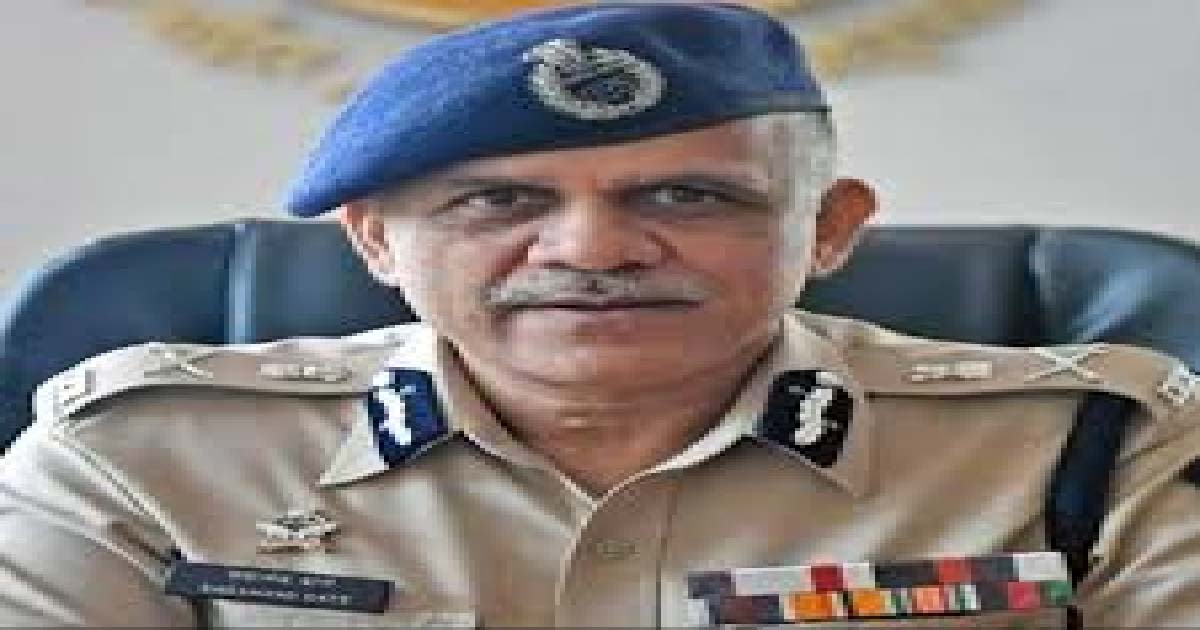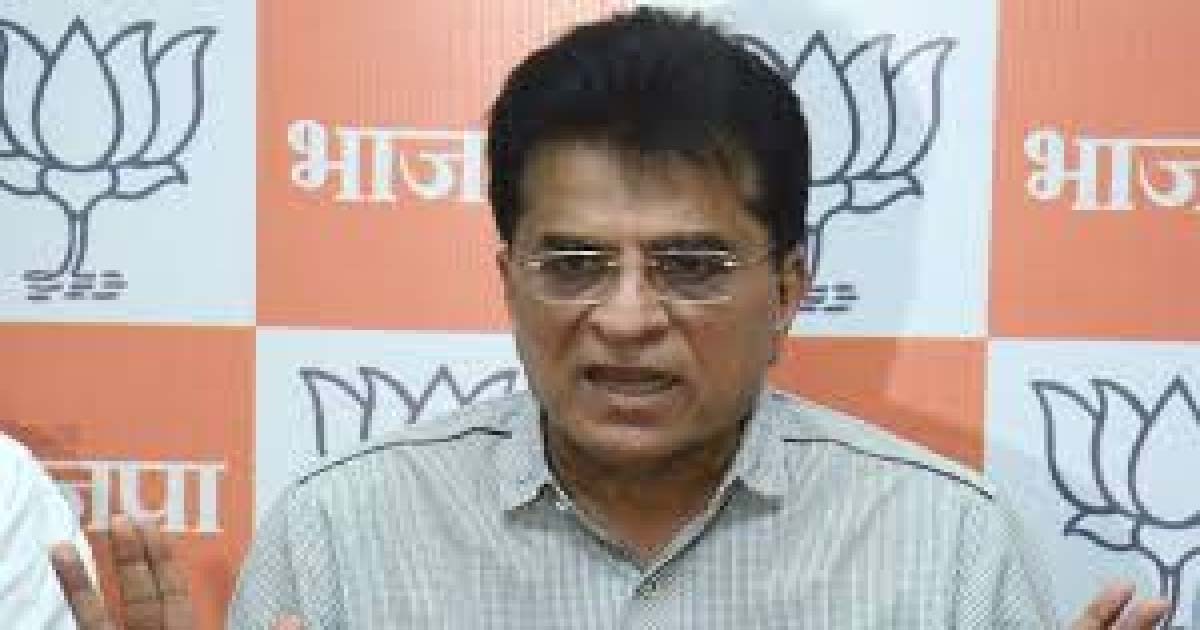Maharashtra
Pune ISIS Module: NIA Arrests Key Operatives After 2-Year International Manhunt

Mumbai: In a major breakthrough, the National Investigation Agency (NIA) on Saturday arrested two absconding accused Abdul Fayaz Sheikh and Talha Liyakat Khan who were identified as key members of a sleeper module of the banned terrorist organization ISIS. The arrests are linked to a 2023 case involving the fabrication and testing of Improvised Explosive Devices (IEDs) in Pune, Maharashtra.
The duo, who had fled the country in 2022 to evade arrest, were declared fugitives by the agency. The NIA had announced a cash reward of ₹3 lakh each for information leading to their capture. Acting on intelligence inputs, the Bureau of Immigration intercepted the accused at Mumbai’s Chhatrapati Shivaji Maharaj International Airport (Terminal 2) when they arrived from Jakarta, Indonesia, where they had been hiding. They were immediately taken into custody by the NIA team and are expected to be produced before a special NIA court shortly.
According to investigators, the duo had meticulously planned their escape after the ISIS module operating out of Pune was busted in 2022. That crackdown led to multiple arrests, including that of Shamil Nachan, son of convicted terrorist Saquib Nachan, who had been designated the Amir-e-Hind (chief of ISIS in India).
Sources revealed that both accused fled along with their families. Talha Khan’s wife and infant daughter left for Oman on May 2, 2022, followed by Khan himself on August 12. Likewise, Fayaz Sheikh’s wife and two children departed for Oman on June 12, while Sheikh left on July 15. Their coordinated flight with their families complicated the investigation and necessitated sustained diplomatic and intelligence cooperation with foreign agencies.
The NIA sources stated that both Sheikh and Khan were radicalized and were working under the instructions of the Ratlam-based ISIS module “Al Sufa,” led by arrested mastermind Imran Khan. Acting on his direction, the duo played a key role in organizing a secret IED workshop in Pune and inviting other ISIS operatives to participate.
The accused were actively involved in propagating the violent and extremist ideology of the Islamic State of Iraq and Syria (ISIS) and engaged in preparatory acts of terrorist violence, including recruiting individuals to the organization. They had also pledged allegiance (Bayat) to the self-styled Khalifa (leader) of ISIS.
According to the NIA, both Abdul Fayaz Sheikh and Talha Liyakat Khan, along with eight other members of the ISIS Pune sleeper module who are already under arrest and in judicial custody, had conspired to carry out terrorist acts aimed at disturbing India’s peace and communal harmony. The agency stated that the group intended to wage war against the Government of India in pursuit of ISIS’s radical objective of establishing Islamic rule in the country through violence and terror.
According to the NIA chargesheet, the investigation into the ISIS Pune terror module uncovered a secret workshop for the fabrication, creation, and testing of improvised explosive devices (IEDs) held at a shop owned by accused Fayaz Sheikh. Sheikh, widely known as “Diaperwala” for running a diaper store in Pune’s Kondhwa area, hosted the clandestine session in April 2022.All members of the Pune ISIS terror module including arrested accused Zulfikar Ali Barodawala, Mohammed Imran Khan, Mohammed Yunus Saki, Simab Nasiruddin Kazi, and Abdul Kadir Pathan, among others reportedly participated in the workshop.
Arrested accused Shamil Nachan and Akif Nachan traveled to Pune carrying explosive chemicals and processed powder to participate in the IED manufacturing and training exercise. The duo stayed overnight at Sheikh’s residence along with the explosive materials during their visit.
Another suspected absconding accused, Talha Liyakat Khan, is also a resident of Pune and is associated with Fayaz Sheikh (Diaperwala). He too is believed to be a participant in the ISIS Maharashtra terror module and played a major role in organizing the IED workshop.
According to reliable sources, both Fayaz Sheikh and Talha Liyakat Khan were radicalized and, under the instructions of the Ratlam-based ISIS terror module, “Al Sufa,” mastermind and arrested accused Imran Khan arranged the IED workshop and invited other terror suspects to participate. Once intelligence confirmed their presence in Oman, the NIA initiated extradition proceedings through the Ministry of External Affairs, sharing all necessary documentation and case files with Omani authorities. Officials believe that their custody and interrogation will help unravel the full extent of the ISIS-linked network and the group’s operational plans in Maharashtra and beyond.
The case forms part of a broader investigation into ISIS modules operating in India, with several arrests already made and multiple digital devices, explosive materials, and radical literature seized during raids.
Maharashtra
Mumbai: Sadanand date is certain to be the next DGP of Maharashtra, the state government will decide soon, the NIA chief can now be appointed as the state chief

Mumbai: Sadanand Date is certain to be appointed as the new Maharashtra chief. Sadanand Date is currently serving as the head of the National Intelligence Agency (NIA). The state government has recommended Maharashtra cadre IPS Date for the post of DGP, after which Sadanand Date can now be appointed as the new DGP of Maharashtra. Date is also an important contender because his retirement is in 2027 and he will remain in the post of DGP for two years. The state government will soon take a decision regarding the DGP. The government has also requested to send Sadanand Date back to the state cadre, which makes it clear that Sadanand Date can be selected as the next DGP. Many senior officers are in the race for this post, but Data is the most senior among the senior officers.
Maharashtra
Illegal Bangladeshi birth certificate… Dr. Ashraf Qazi accused of forging certificate, kirit Somaiya demands action in L Ward

Mumbai: Police has started an operation against Bangladeshis in Mumbai. On the other hand, BJP leader Kirit Somaiya has started demanding action against Bangladeshis. In Kurla, an alleged Bangladeshi girl, Najma, gave birth to a girl in 2024. Najma had sent an application to the Kurla L Ward and the Collector, including the education officer, for issuing her birth certificate. In this, Kirit Somaiya has made a serious allegation that Najma is Bangladeshi and Dr. Ashraf Qazi of the clinic in the building adjacent to Kurla LIG Colony had given her a certificate for the birth certificate of her girl, after which the certificate of this Bangladeshi girl, Saiba, was issued. Kirit Somaiya has also released the Aadhar card of Najma and her husband Ayub Nat on X in this regard. Along with this, the doctor’s certificate obtained from RTI has also been released by Kirit Somaiya on X, in which the doctor said that the girl was born on November 19, but the birth took place at home. The BHMS doctor had confirmed all this. Based on the documents, Kreet Soumya has demanded action against Bangladeshi Najma. Along with this, in the application that Najma has filed before the Tahsildar, she has requested to obtain the birth certificate as soon as possible and the signature she has at the end is in Bengali. Kreet Soumya met the health officer in L ward and demanded action against the Bangladeshi birth certificate. Once again, Kreet Soumya has started targeting Muslim-majority areas before the BMC elections. Earlier, Kreet Soumya had targeted Govindi, Mankhurd and Malegaon in the case of fake certificates. Now, Kreet Soumya has applied in the suburban area of Kurla, Mumbai, that birth certificates of Bangladeshis have been issued here too. Kreet Soumya has also referred to 15 fake certificates that have been issued to alleged Bangladeshis in Kurla. Mumbai Police has deported more than 1,000 Bangladeshis living in Mumbai and registered 404 cases, despite which Kret Soumya is not satisfied with the police’s action. This action was reported by Mumbai Police Commissioner Devin Bharti himself. When Dr. Ashraf Qazi was asked about Kret Soumya’s allegation, he called it baseless and said that the girl was born at home and after that the girl had a complaint, I treated her and issued her medical certificate. The work of issuing birth certificates is the responsibility of the BMC administration.
Maharashtra
Maharashtra Minister Chandrashekhar Bawankule Blames SEC For HC Order Deferring Maharashtra Civic Poll Counting To Dec 21

Mumbai: Maharashtra Minister and senior BJP leader Chandrashekhar Bawankule on Tuesday said “misinterpretation of laws” by the State Election Commission (SEC) has led to the Bombay High Court deferring the counting of votes for the local bodies polls to December 21.
The SEC’s actions alone had “prompted such a decision”, the state revenue minister claimed, adding that he had repeatedly cautioned the poll body against delaying elections.
Bawankule was speaking to reporters here hours after the Nagpur bench of Bombay High Court directed that the counting of all civic bodies polls in the state will be held on December 21.
The SEC had earlier scheduled the counting for Tuesday’s elections on December 3.
The HC’s order has come on a day when polling was underway for elections to 264 municipal councils and nagar panchayats in Maharashtra, days after the SEC rescheduled the elections in 24 local bodies on December 20.
“I have been saying that the SEC is misinterpreting laws and postponing elections without any basis,” Bawankule said.
He pointed out that there were no demands for the postponement of elections from any part of the state, and despite this, the SEC had delayed the polls, resulting in the high court’s intervention.
The minister further stated that it was “for the first time in the history of the SEC” that elections or counting had been stayed in such a manner.
“Such decisions are unacceptable. Leaders across parties are outraged,” Bawankule said, claiming that the SEC had failed to hold any all-party meetings and is creating problems for voters.
Raising questions about the deferred counting date, he said, “Which political party wants counting on December 21? We want the result tomorrow. Is there any political party in Maharashtra that wants results on the 21st?” The BJP leader said that he had personally raised concerns with the SEC on several occasions.
“I discussed these issues seven to eight times and even wrote to them, but nothing was acknowledged. We showed the SEC how it was misinterpreting laws, yet everything was taken in the wrong way,” he said.
Asked whether the high court’s order would be challenged, Bawankule said it was for the SEC to decide.
“It is the SEC’s prerogative to appeal in the Supreme Court. For once and for all, the Commission should find a solution. Larger local bodies are yet to face elections,” he said.
He also criticised the SEC’s handling of the poll schedule.
“It is not good that political parties put in effort, run campaigns, and then suddenly the Commission postpones polling. It does not present a good picture,” the minister said.
He slammed the Opposition parties for blaming the government for the postponement, saying their allegations were misplaced.
“The SEC is an autonomous body. The government has no role. This chaos is unfathomable, and the Commission must resolve it,” he said.
Expressing disappointment over the last-minute postponement of polling in some pockets, Bawankule said, “How can you let parties campaign for weeks and then, 24 hours before polling, announce postponement? In 35 years of public life, I have never seen such mismanagement.” “I spoke to several collectors and SEC officials, but nobody was ready to hear us. It appears the people in the SEC feel they are above accountability,” he said.
-

 Crime3 years ago
Crime3 years agoClass 10 student jumps to death in Jaipur
-

 Maharashtra1 year ago
Maharashtra1 year agoMumbai Local Train Update: Central Railway’s New Timetable Comes Into Effect; Check Full List Of Revised Timings & Stations
-

 Maharashtra1 year ago
Maharashtra1 year agoMumbai To Go Toll-Free Tonight! Maharashtra Govt Announces Complete Toll Waiver For Light Motor Vehicles At All 5 Entry Points Of City
-

 Maharashtra1 year ago
Maharashtra1 year agoFalse photo of Imtiaz Jaleel’s rally, exposing the fooling conspiracy
-

 National News1 year ago
National News1 year agoMinistry of Railways rolls out Special Drive 4.0 with focus on digitisation, cleanliness, inclusiveness and grievance redressal
-

 Maharashtra1 year ago
Maharashtra1 year agoMaharashtra Elections 2024: Mumbai Metro & BEST Services Extended Till Midnight On Voting Day
-

 National News1 year ago
National News1 year agoJ&K: 4 Jawans Killed, 28 Injured After Bus Carrying BSF Personnel For Poll Duty Falls Into Gorge In Budgam; Terrifying Visuals Surface
-

 Crime1 year ago
Crime1 year agoBaba Siddique Murder: Mumbai Police Unable To Get Lawrence Bishnoi Custody Due To Home Ministry Order, Says Report












